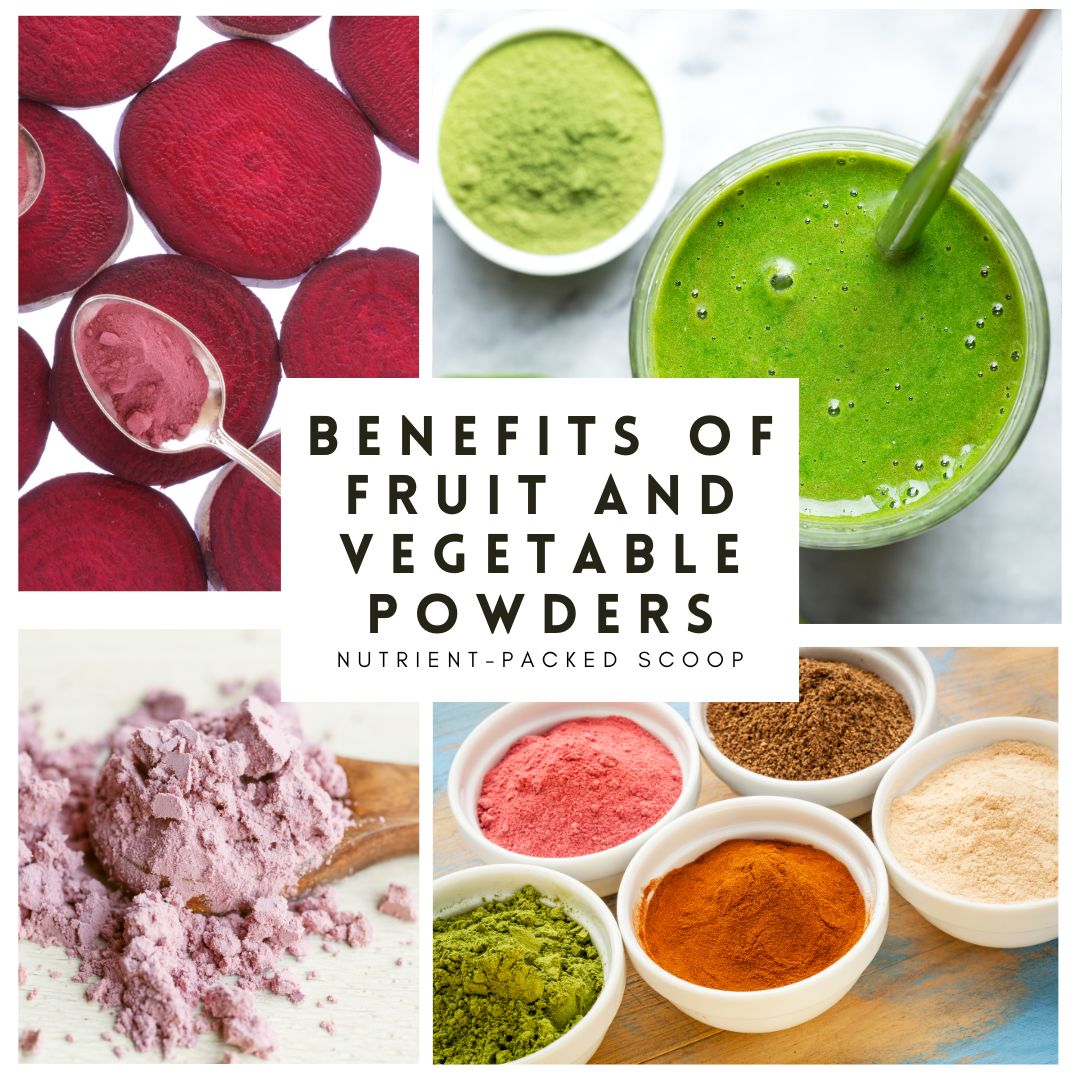Harness the Power of Fruit and Vegetable Powders: A Nutritional Expert's Guide to Better Health

Reaping the Benefits of Fruit and Vegetable Powders
Advantages of Incorporating Powders into Your Diet
- Longer Shelf Life
- Convenience
- Nutrient Density
- Versatility
Using Powders for Maximum Benefits
- Smoothies
- Baking
- Sauces and Dressings
- Natural Food Colorings and Flavorings
Key Points to Remember
- Fruit and vegetable powders offer a convenient and nutrient-dense alternative to fresh produce.
- Use powders in smoothies, baking, sauces, and dressings for a tasty and nutritious boost.
- Always choose high-quality, minimally processed powders to ensure maximum benefits.
- Remember, powders should complement, not replace, a balanced diet with fresh fruits and vegetables.
A Funny Anecdote to Lighten the Mood
Remember that time when you accidentally added beet powder to your morning smoothie instead of acai powder? You were expecting a sweet and fruity concoction, but instead, you got an earthy surprise! Well, at least you still reaped the nutritional benefits of those beets, right? Life is full of unexpected twists and turns, and sometimes, even our smoothies can throw us a curveball.
Wrapping It Up: Embracing the Versatility of Fruit and Vegetable Powders
Incorporating fruit and vegetable powders into your diet is a fun and easy way to add extra nutrients to your meals. While they're not a replacement for fresh produce, they provide a convenient and versatile option that can help you maintain a balanced and healthy diet. So, why not give them a try? You might just find that they add a pop of color, flavor, and nutrition to your favorite recipes!
A Nutrient-Packed Scoop: Exploring the Benefits of Fruit and Vegetable Powders
Fruit and vegetable powders provide an impressive range of nutrients in just a single scoop, making them a convenient and powerful addition to your diet. Since powders are made from the whole fruit or vegetable, including the skin and pulp, they contain a higher concentration of nutrients compared to fresh produce.
Nutrient Density in Fruit and Vegetable Powders
Making the Most of a Nutrient-Dense Scoop
- Choose high-quality, minimally processed powders from reputable brands to ensure you're getting the most nutrients possible.
- Combine different powders to create a nutrient powerhouse. For example, mix spinach powder with acai powder for a boost of vitamins, minerals, and antioxidants.
- Incorporate powders into various recipes, such as smoothies, oatmeal, yogurt, or baked goods, to enjoy a range of flavors and textures while benefiting from the nutrients in each scoop.
FAQ: Discovering the Power of Fruit and Vegetable Powders
- Q: What is the process for creating fruit and vegetable powders?
- A: Fruit and vegetable powders are typically made by dehydrating fresh produce and then grinding it into a fine powder. This process preserves the nutritional content while removing moisture, which results in a concentrated and shelf-stable product.
- Q: Are organic fruit and vegetable powders better than non-organic options?
- A: Organic powders are made from produce grown without synthetic pesticides or chemical fertilizers, which can be beneficial for your health and the environment. However, non-organic powders can still provide valuable nutrients. The choice depends on your personal preferences and budget.
- Q: Can fruit and vegetable powders help with weight management?
- A: Powders can be a helpful addition to a weight management plan, as they provide essential nutrients without excess calories. The fiber content in some powders can also help promote feelings of fullness, reducing the temptation to overeat. However, powders should be used in conjunction with a balanced diet and regular exercise for the best results.
- Q: Are fruit and vegetable powders safe for people with food allergies or sensitivities?
- A: It depends on the specific allergy or sensitivity. Some powders may be free from common allergens, like gluten or dairy, but it
- A: It depends on the specific allergy or sensitivity. Some powders may be free from common allergens, like gluten or dairy, but it's crucial to read labels and ingredient lists carefully. If you have severe allergies or sensitivities, consult with a healthcare professional before incorporating powders into your diet.
- Q: How do I store fruit and vegetable powders to maintain their freshness and nutritional value?
- A: Store powders in a cool, dry place, away from direct sunlight or heat sources. Keep them in an airtight container to protect them from moisture and potential contamination. Following these guidelines will help maintain the freshness and nutrient content of your powders.
- Q: How can I tell if a fruit or vegetable powder has gone bad?
- A: Signs that a powder may have spoiled include changes in color, texture, or smell. If the powder has clumped together, developed an off-odor, or its color has significantly changed, it's best to discard it and replace it with a fresh product.
- Q: Is it safe for children and pregnant or breastfeeding women to consume fruit and vegetable powders?
- A: Generally, powders made from fruits and vegetables are safe for children and pregnant or breastfeeding women, as they provide valuable nutrients. However, it's essential to consult with a healthcare professional before making significant dietary changes or if you have concerns about specific ingredients.
Remember, fruit and vegetable powders can be a convenient and nutritious addition to your diet, but it's essential to choose high-quality products and use them in conjunction with a balanced diet and healthy lifestyle for the best results.


Leave a comment